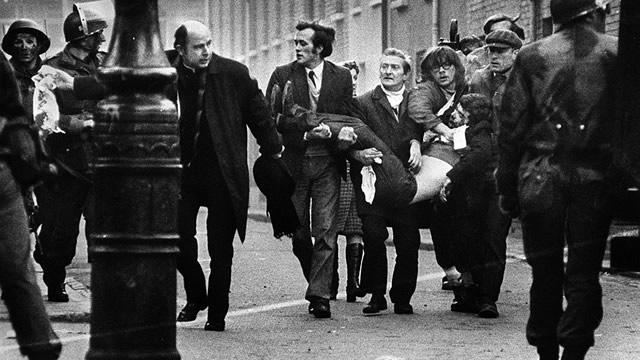Bloody Sunday: Ex-soldier arrested over Londonderry shootings
- Published
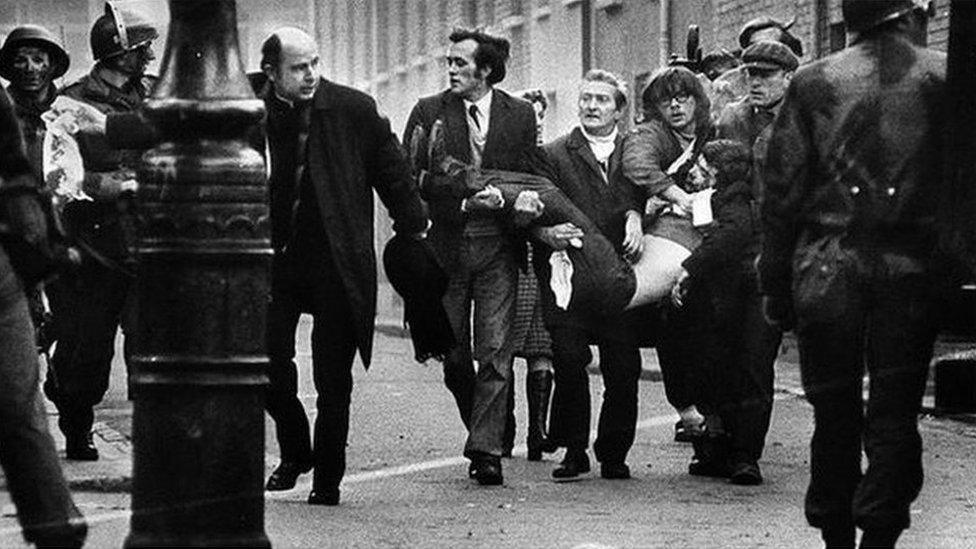
Thirteen people were killed on Bloody Sunday in January 1972
A former soldier has been arrested by detectives investigating the events of Bloody Sunday in Londonderry.
Thirteen people were killed when British paratroopers opened fire on a civil rights march through the city in January 1972.
The 66-year-old is a former member of the Parachute Regiment.
It is understood he is being questioned over the deaths of William Nash, Michael McDaid and John Young.
The man is the first person to be arrested as part of the Bloody Sunday investigation.
He is being interviewed at a police station in Belfast after being detained in County Antrim on Tuesday morning.
He is soldier J, who was one of the soldiers who appeared before the Saville Inquiry.
A 66-year-old former member of the parachute regiment has been arrested by detectives investigating Bloody Sunday
Kate Nash, whose 19-year-old brother, William, was killed on Bloody Sunday, said she welcomed the news.
"I had a call this morning from the police liaison officer that deals with our family," said Ms Nash.
"She said that they had arrested a soldier and that he was being questioned. She said she wanted the family to know first before it went out on the news.
"She said he was being questioned in relation to the death of my brother, William and two others: Michael McDaid, John Young and the attempted murder of my father.
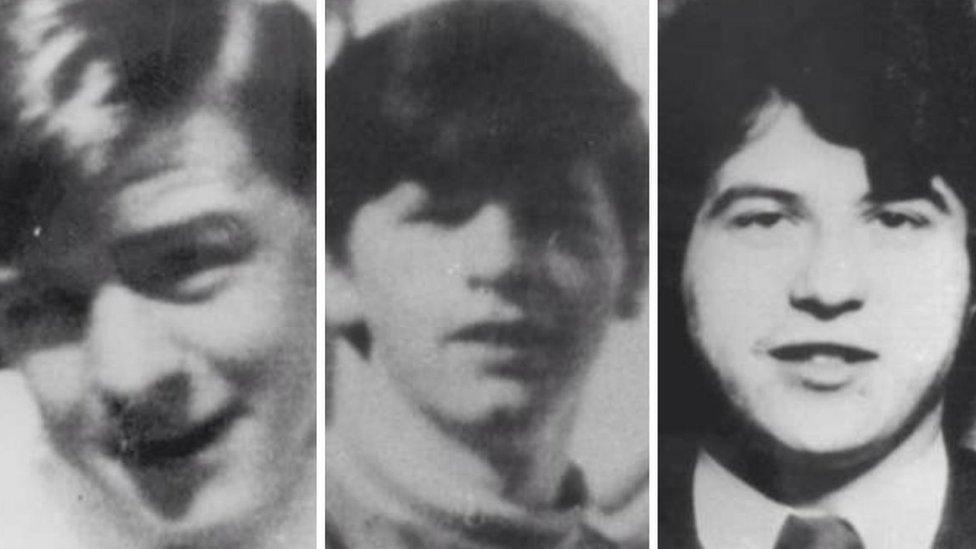
Michael McDaid, William Nash, John Young were killed on Bloody Sunday
"I started to shake. I couldn't believe it. I became very emotional.
"To see a soldier even being questioned has truly shocked me. I never thought it would get to this.
"There is a flicker of hope. It's a very positive step."
The officer leading the investigation, Det Ch Insp Ian Harrison, said the arrest "marked a new phase in the overall investigation which would continue for some time".
In a statement, Peter Madden of Madden & Finucane Solicitors, the firm that represents most of the Bloody Sunday families, said the arrest was "a very welcome development".
'No warning'
A Ministry of Defence (MOD) spokesperson said: "We are aware an ex-soldier has been arrested by the Police Service of Northern Ireland in connection with their investigation into the events of Bloody Sunday.
"It would be inappropriate to comment further on an ongoing criminal investigation at this stage."
The Northern Ireland Office said: "Criminal investigations and prosecutions are a matter for the police and prosecuting authorities who act independently of government and politicians. The government cannot therefore comment on an individual case."
Speaking at Stormont on Tuesday, DUP MP Gregory Campbell said that the question for investigators is whether they are "extending their investigation beyond those who were serving in the police or army on that day".
He said his party are "totally unhappy" that the arrested soldier, if convicted, could "serve a much more lengthy sentence" than paramilitaries found guilty of Troubles-era crimes because of the Good Friday Agreement's early release scheme.
Former Northern Ireland Secretary Lord Mandelson told Channel 4 News: "There are perils in going back so far into history.
"Perils over the evidence that is available, people's memories, people's ability to produce their own evidence and facts so long ago to present to some sort of tribunal or commission or court of law or whatever it is."
Bloody Sunday was one of the most controversial days in Northern Ireland's history.
In 2010, Prime Minister David Cameron apologised to the Bloody Sunday victims on behalf of the state, after a long-running public inquiry unequivocally blamed the Army for the civilian deaths.
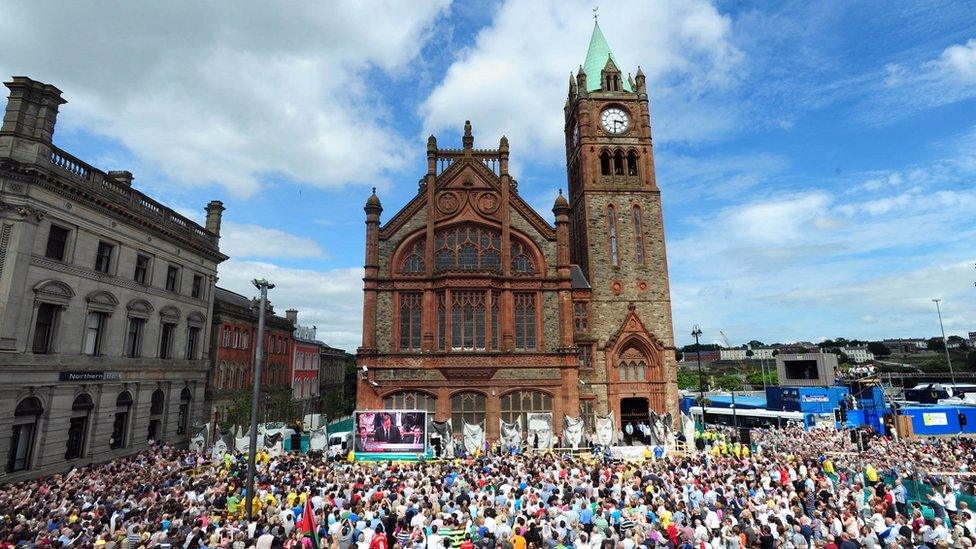
Thousands of people gathered in Derry in 2010 to watch Prime Minister David Cameron apologise for the Army's actions on Bloody Sunday
The inquiry, led by Lord Saville, took 12 years to complete and exonerated those who died.
It concluded that soldiers fired the first shot and gave no warning before opening fire on the civilian marchers.
The Saville Report, external also found that some of those killed or injured were clearly fleeing or going to help the injured and dying.
Accepting the findings of the 2010 inquiry, Mr Cameron described the killings as "unjustified and unjustifiable" and said he was "deeply sorry".
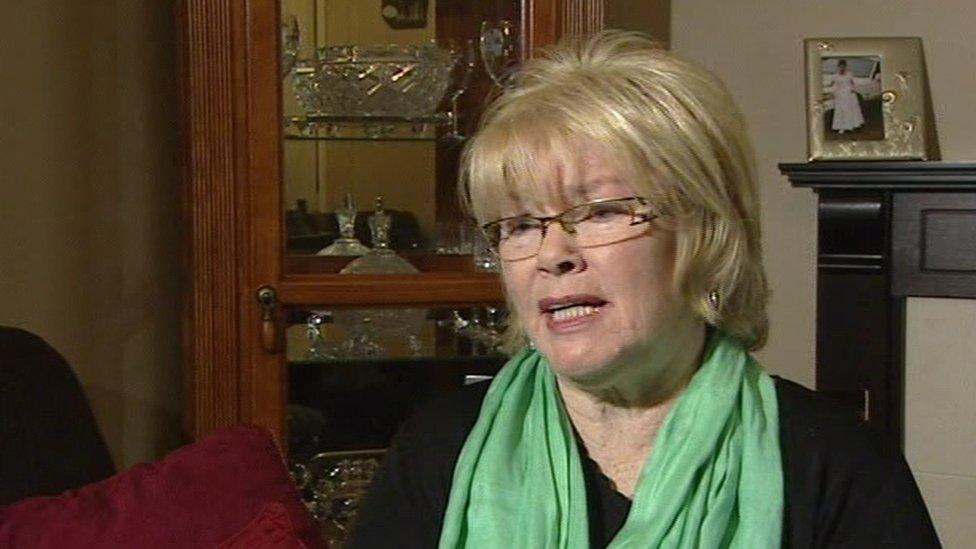
Kate Nash, whose brother, William, was killed on Bloody Sunday, has welcomed the news
The arrest was made by the Police Service of Northern Ireland's Legacy Investigation Branch.
The specialist police team was set up to re-investigate unsolved murder cases, dating from the beginning of the Troubles in the late 1960s, up to 2004.
The Legacy Investigation Branch replaced the Historical Enquiries Team (HET), shortly after an inspection report criticised the HET for treating state killings with "less rigour" than others.
The branch began work in January this year, taking over the Bloody Sunday investigation along with other HET cases.
Clarification 9 April 2019: This article was amended to remove a reference to the death of John Johnston. This reflects the Bloody Sunday Inquiry's finding about Mr Johnston's death several months after he was wounded in Derry on 30 January 1972. The inquiry report states that his death was "not the result of any of the wounds he sustained on Bloody Sunday".
- Published10 November 2015
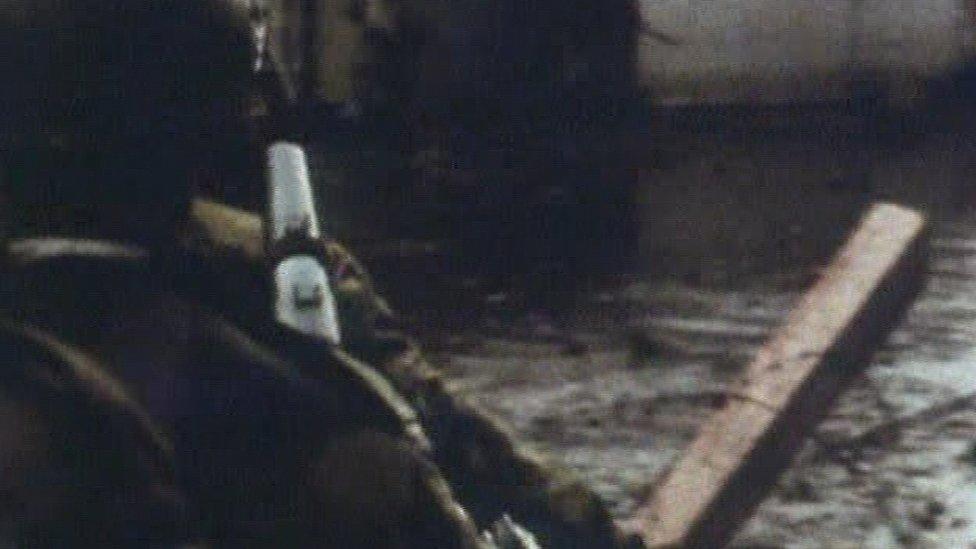
- Published15 June 2010
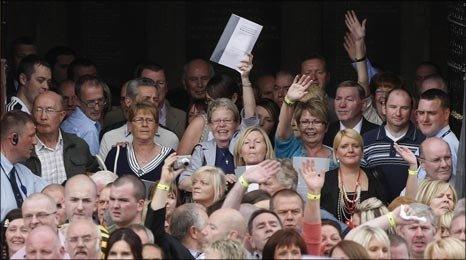
- Published17 September 2015
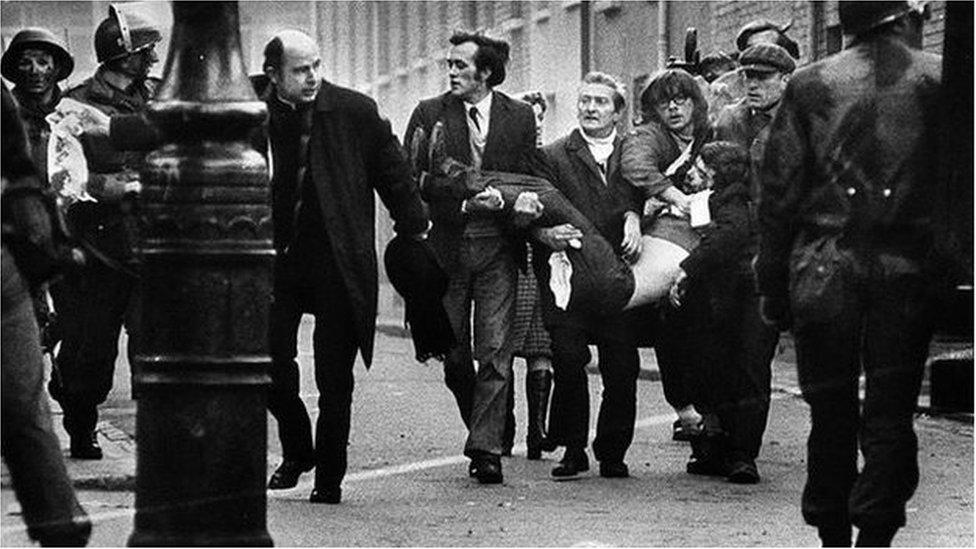
- Published5 June 2015
